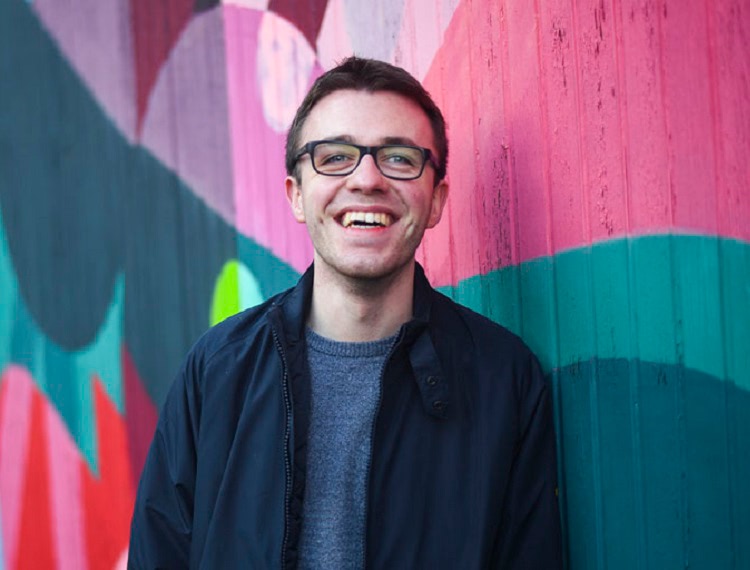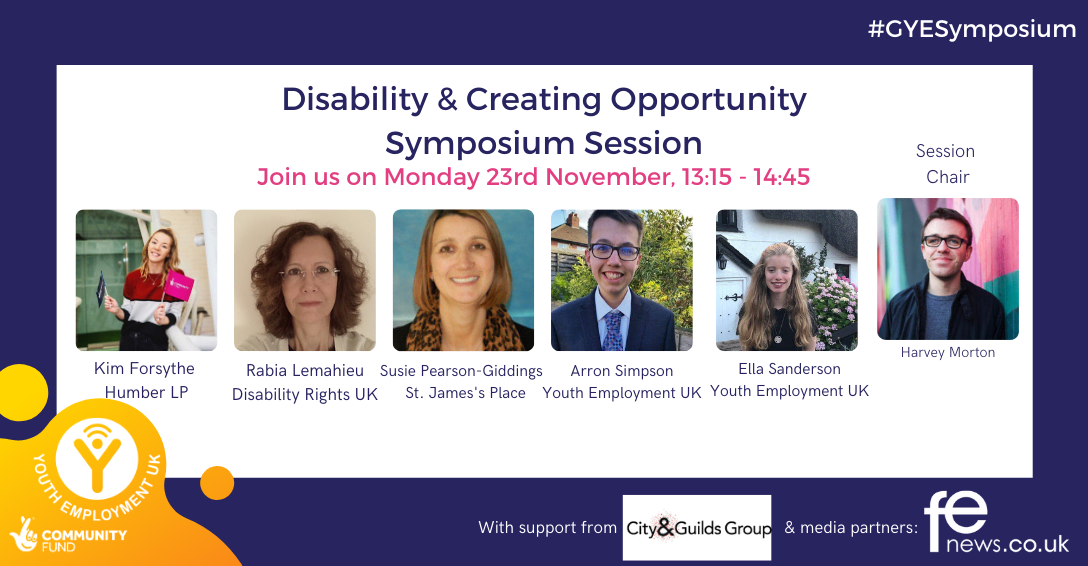Disability & Creating Opportunity

Youth Ambassador Chair, Harvey Morton welcomed our attendees to our Disability & Creating Opportunities session, the second session of our week long Symposium series. This session was supported by Rabia Lemahieu, Disability and Skills Manager at Disability Rights UK, Kim Forsythe, This-Ability Project Manager, Humber LP, Susie Pearson-Giddings, Head of early careers, St James’ Place and Youth Ambassadors Arron and Ella.
This session aimed to give a better understanding of the issues being faced by young people with disabilities accessing the labour market as well as sharing best practice to support more young people with disabilities in to work.
The 2020 Youth Voice Census tells us that young people with additional needs are less likely to get employability support and are at least 10% less confident that they will be able to secure meaningful employment when compared to their non disabled peers.
The challenge:
Disabled young people are facing a real challenge, especially since the pandemic, everything has been impacted form education, work and independence.
Key facts:
- 8% of children are disabled
- 19% of working age adults (16-64) are disabled -7.7million
- In 2019, there were 53.2% disabled people employed compared with 81.8% for non-disabled people
- In 2018/19, 11.8% (46,000) of apprenticeship starts were learners with learning difficulties and/or disabilities
- The proportion of disabled people with no qualifications is nearly three times that of non-disabled people
- Disabled people earn less
- On average life costs £500 a month more if disabled
- Young disabled people aged 16–24 are more likely than other groups to end up not in employment, education or training (NEET)
The rate of young people disabled people living in poverty is 6% higher than for non disabled young people. Young Disabled people aged 16 – 24 were more likely to end up NEET, become homeless, have mental health issues and are overrepresented in the criminal justice system.

The opportunity
Through the session we heard from employers, practitioners and young people on what can be done to create more quality opportunities for young disabled people. A clear message was that most organisations are on a journey to improve their opportunities and support for disabled people but recognising good practice and the need to lean into expert organisations is a fundamental step.
- Use the tools available : Supported internships and access to work programmes
- Bring employers and expert organisations together who can share their good practice and support one another
- Co-Create programmes and opportunities with people that have experience of disability and additional needs
- Make the most of the free disability awareness training that is available, supporting colleagues within the business who will be colleagues to young disabled workers is fundamental
- Put in place a dedicated mentor for the young person who has the time to get to know them at an individual level and support and champion their needs
- Be honest about what you can and cannot do, make sure it is done well and not tokenistic
- Do not be afraid to ask questions that will lead to a better understanding and better organisational change
Laura-Jane Rawlings CEO of Youth Employment UK












Responses